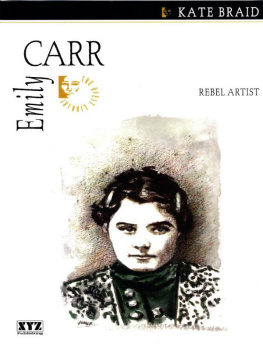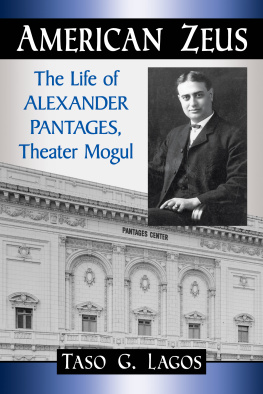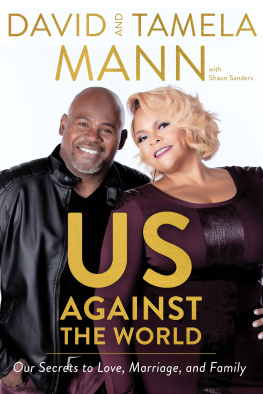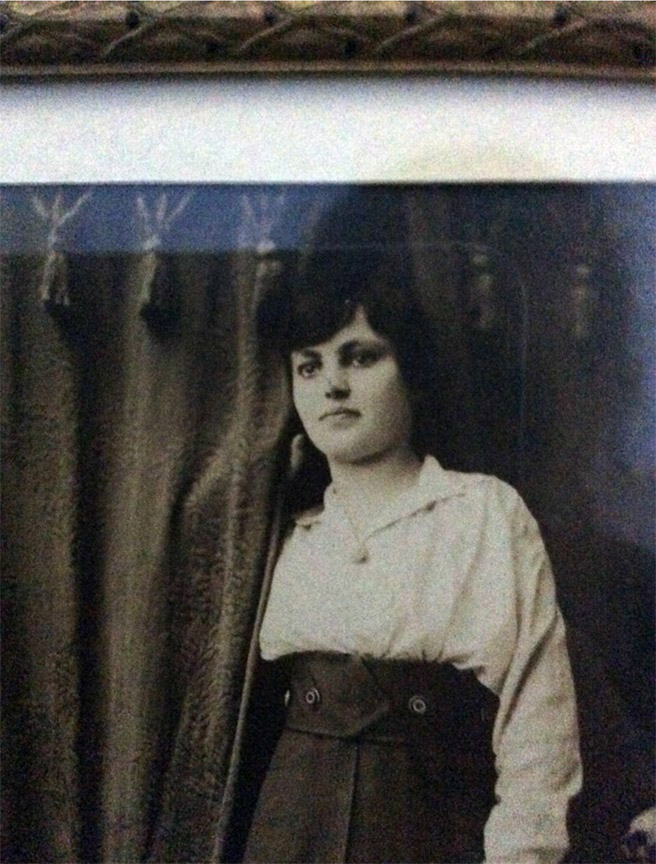THIS BIOGRAPHY could not have been written without the generous cooperation of Emily Mann, who was unstinting in giving of her time for interviews about her life and her lifes work. In addition, she graciously allowed me to pore through drawers and boxes and shelves, a cornucopia of letters and diaries, drafts of scripts, collections of theater reviews, and family documents and photographs, all of which have been invaluable resources for writing this biography.
The McCarter Theatre Centers fine staff of artists and administrators were always considerate and helpful. I particularly thank Thomas Miller, who at that time was director of public relations, for alerting me to the film Saigon: Year of the Cat and a glimpse of Emily Manns acting, and for retrieving photographs of Emily Manns McCarter productions. I reserve a special thank you for Manda Bliss, Emily Manns exceptionally organized and dedicated executive assistant, who somehow always found time on Manns schedule for us to meet.
I am especially grateful to my agent Philip Turner, for his superior editing, his patience, and his commitment to finding the ideal home for this book, which has been so beautifully produced by the editors and designers at Rowman & Littlefield/Globe Pequot.
I want to thank my late aunt, Anita Zacharias, for her munificent gift. I also thank Preston M. Torbert, lecturer at the University of Chicago Law School and visiting professor at the Peking University School of Transnational Law, for his generous gift of several days at the University of Chicagos Quadrangle Club, while I researched the Arthur Mann Papers at the universitys Joseph Regenstein Library. Biographers could not exist without knowledgeable librarians, and those at the Regenstein, Harvard Universitys Houghton Library, the Brooklyn College Library, the Barnard Library at Barnard College, and the Seeley G. Mudd Manuscript Library at Princeton University allowed me to sit for hours, sometimes days, and sift through files. I am particularly grateful to Rebecca Bramlett, Research Services Coordinator for the Special Collections Research Center of the George Mason University Libraries, and Delinda Stephens Buie at the University of Louisville Libraries for their assistance and guidance.
My friends Martin Cohen, Cynthia Cooper, Cathy Hemming, Michal Kobialka, and Elizabeth Swain were always there to provide advice and encouragement, as was my generous stepson Benjamin Hough. No words can express my gratitude to my husband, Gordon Hough, for his patience, encouragement, and his love.
A. G.
(19521955 and Before)
EMILY BETSY MANN was born on April 12, 1952, at Boston Lying-In Hospital. Her mother, Sylvia Blut Mann, and her father, Arthur Mann, were living at the time in Belmont, a Boston suburb; Arthur was about to receive his doctorate in American history from Harvard and was teaching in Cambridge at the Massachusetts Institute of Technology (MIT). Mann recalled being told that she was named for the American poet Emily Dickinson, a favorite of both her parents. As for the source of Betsy, the story Mann heard while growing up was that Sylvia wanted to use the name of her paternal grandmother, Berthaexcept Sylvia didnt have the heart to name any child Bertha.
Sylvia grew up in Paterson, New Jersey, the eldest of two children of Isaac Blut and Gussie Blum, Jews who had emigrated from Poland. Immigration records are contradictory, but it seems that each arrived separately at Ellis Island: twenty-one-year-old Isaac, known then as Isaak, in 1914 from Warsaw, the capital of the Kingdom of Poland, which was part of the Russian Empire; Gussie, or Gossie, Blum, who was seventeen, arriving from Ostroka, a shtetl, or town, in Polands Bialystok region.
Once upon a time, late in the nineteenth century, Jews dominated the population of Ostroka. But with the onset of World War I, the Russians and then the Germans expelled the Jews, and shelled and burned the town. According to Gussie, her own mother insisted that she and her sister go to the United States, an arduous trek: overland across Europe, often to Hamburg, and then by ship to Liverpool and at last America. Gussie did not want to leave her mother, but that decision undoubtedly saved Gussies life. Twenty-five years later, in 1939, the Jews who had returned to Ostroka after the Great War, including members of Gussies family, were annihilated when Hitlers armies invaded and occupied Poland.
Gussie Blut, Emily Manns maternal grandmother
COURTESY OF CAROL MANN
The origin and fate of the Blum family, and the eradication of Ostroka and its Jews during World War II, would become the impetus for Manns first professionally produced play, Annulla Allen: The Autobiography of a Survivor (1977).
How Isaac Blut and Gussie Blum met is no longer known, but they were married on June 27, 1920, in New York City and settled at first in Harlem, where, early in the twentieth century lived one of the largest Jewish communities in the world. There, at home on a cool, rainy, early spring dayApril 16, 1921Gussie gave birth to Sylvia. Family lore has it that Gussie went out to visit a relative and do some shopping, came back to the apartment, went into labor, and gave birth on the floor.
By 1925, Isaac, Gussie, and four-year-old Sylvia had moved to Paterson, New Jersey, for in that year Isaac established the United Shop Cap Company with several partners. Emily Mann never met her maternal grandfather (he died in 1949), but she knew Gussie, who kept a kosher home and was an outstanding cook, producing matzoh balls and potato latkes, stuffed derma and a splendid brisket. She spoke Yiddishwhat the writer Isaac Bashevis Singer called the and broken English, and many times Emmy would sit at a table in Gussies kitchen, chin resting on her hands, mesmerized as she watched her grandmother chop vegetables, or deftly shape matzoh balls, or cut up a chicken, talking all the while. The intimate kitchen visits, and the pleasure Emmy took in themthey, too, would find their way into Manns plays, into Annulla Allen and later into Having Our Say: The Delany Sisters First 100 Years (1995).
Some of the came from older women in my life in the kitchen, Mann once told me. The kitchen is where most people, male and female, used to go and put their little elbows up on the Formica table, smell all the food, and be in a very close and secure place, and learn about the world.
America offered Isaac Blut and his family a refuge from the wars that lay waste to European Jewry, and the freedom to live without fear of official persecution, but their new country was not free of prejudice against Jews. Well into her nineties, Sylvia Mann spoke about the anti-Semitism she experienced as a child and also as a young woman, when, after graduating in 1942 from Paterson State Teachers College, with a B.S. in education, she tried to find a teaching job and often was passed over.
That firsthand experience of anti-Semitism was something Sylvia Blut and Arthur Finkelman had in common.
Sylvia was twenty, when, during the summer of 1941, she and her family vacationed at a resort in New York States Catskill mountains, a popular destination for middle-class Jews from New Jersey and New York. The lifeguard at the swimming pool that summer was a young man with dark curly hair, a tapering waist, and muscular legs, who was sitting in the lifeguards chair reading a Dostoyevsky novel. He and the slim, graceful woman with the heart-shaped face, tightly waved brown hair, and soft, warm smile became entranced with each other.
Arthur managed to get his hands on an old car and scraped together enough money for gas; fortunate, too, because after the United States entered World War II, in December 1941, hardly any new automobiles were manufactured, and gasoline was rationed. Still, whenever money, fuel, and his courses at Brooklyn College would allow, he drove to Paterson to court Sylvia Blut. As for Sylvia, whether talking with her children years later, or in private wedding anniversary notes to Arthur, she often said that her life really began the day she met him.






